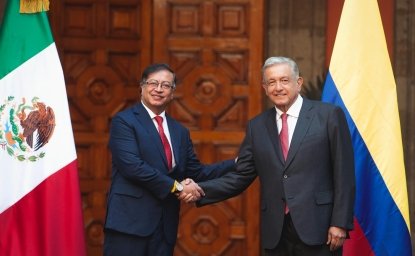
How serious a threat is disinformation and freedom of expression infringement to democracy in the Americas? In this episode, our experts and guest Nina Janckowicz, the Wilson Center’s Disinformation Fellow, discuss the origins of disinformation, its pernicious role throughout the COVID-19 crisis and how to sustain and build institutions to mitigate its effects.
Available on SoundCloud; Spotify; Apple Podcasts
Listen to Previous Episodes of Americas 360
Duncan Wood
- "And we're seeing this very clearly in Mexico right now. You have a president there, Andres Manuel Lopez Obrador, who is, of course, a master communicator, and he recognizes the importance of getting the high ground in any communications battle. That's why he has his morning press conference, the famous mañanera, at 7 a.m. every morning. And he uses that press conference to discredit, not just his political opponents, but anybody who might criticize him. And that means, of course, some of the more respectable media outlets in the country, newspaper and TV journalists."
- "One of the most sinister side effects of this is the facts matter less and less...And so I think that now it's doubly important to strengthen support for civil society organizations throughout the Americas."
Christopher Sands
- "I also feel that one of the challenges with this this problem that we're facing internationally is just as it divides society, it also makes it harder for governments to work together."
- "Last year...Canada signed onto a major initiative co-chairing with France, an attempt to create an International System of third party verification that would try to shore up certain sources of news and protect democracy. This was particularly aimed at Russia at the time, and Canada has been involved in this effort now for several months. But...once you've discredited a government's source of information and governments aren't trusting each other, it's very hard for governments to work together to try to clean up the misinformation that's out there."
Cynthia Arnson
- "But I think we also need to talk about some of the other threats to freedom of expression in the Americas. It's certainly not limited to the circulation of disinformation. The murders of journalists, the arrest and torture of journalists. Things like a case in Nicaragua, of denying newspapers the ability to import newsprint. In Honduras, nominally a democratic country, seven journalists were murdered last year and two family members of journalists murdered last year. Venezuela has done away with the opposition media by revoking licenses and just continually cracking down on the free flow of information. So there's many ways that authoritarian governments or authoritarian-leaning governments can restrict the kind of information that's available to the citizens."
- "There's another example in Colombia, when there was a plebiscite, a vote on the the peace accords that had been negotiated between the government and the FARC guerrillas. There were lots of reasons that that plebiscite lost. But one of them was the circulation over and over on social media that it contained some kind of gender ideology, which was seen by conservative evangelical groups as an attack on the structure of the family and the promotion of the disintegration of the family. So there are ways, as Nina was saying, that the platforms of social media are set up for engagement that just magnifies and multiplies the rapid circulation of things that are not true."
Benjamin Gedan
- "The phenomenon of presidential candidates benefiting from misinformation is really problematic...in the case they benefit from it, it's really asking a lot of these candidates to take steps to minimize the spread of that information."
- "I think what we need to do though, maybe more urgently in Latin America, is to preserve the sources of legitimate good information. As we've talked about, those are really under threat right now, with presidents taking advantage of the pandemic to limit public information and to repress what they see as their opponents in the media. So I think most urgently, we need to defend and protect sources of decent information, as we also look at the longer term threats for misinformation."
Ricardo Zúñiga
- "In the case of the 2018 [Brazilian] Presidential Election, it was the use of WhatsApp as a vehicle for spreading disinformation that really proved very divisive in that election and in that society, and clearly was instrumental in picking up, as Nina said, nuggets of truth and turning them into conspiracies and broad conspiracy theories associated with one campaign or the other. But that was just the beginning, that was sort of the opening salvo in a competition of disinformation campaigns that we're starting to see in other parts of the region as well."
- "Unfortunately, what we've found is that those who aim to achieve some particular political outcome, or who aim to disrupt democracy in general, realize this is a vehicle that gets right at people's psyche, gets right at their greatest fears, and is the equivalent of having, not just shouting fire in a crowded theater, but being able to multiply that shout into every household. And they pick up on genuine fears, genuine concerns, genuine prejudices, and amplify them, so massively that it is difficult for us to maintain the norms that have helped maintain social peace in many countries around the region for so long."
Nina Janckowicz
- "Disinformation runs on emotion. We often describe it as "fake news," but it couldn't be further from the truth. There is always a kernel of visceral truth at the center of the most successful disinformation narratives. They're not just photoshopped images or made up stories; they matter to people. That's why we've seen so much disinformation around the coronavirus pandemic."
- "We need to look at the more domestic, endemic issues that allow disinformation to flourish. And then put the sort of oomph behind that that only the government can provide. So think about things like media literacy, think about solving the civics crisis that we have...On the platform levels, I think we need a lot more transparency into why we are receiving the information that we're receiving and who's sending it to us, why we're being targeted."
Guests


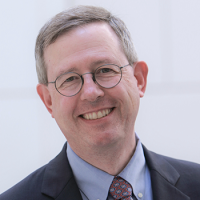

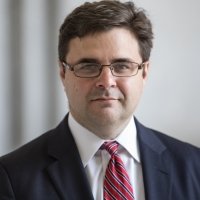

Founder, Sophias Strategies LLC; Former Fulbright-Clinton Public Policy Fellow
Moderator


Mexico Institute
The Mexico Institute seeks to improve understanding, communication, and cooperation between Mexico and the United States by promoting original research, encouraging public discussion, and proposing policy options for enhancing the bilateral relationship. A binational Advisory Board, chaired by Luis Téllez and Earl Anthony Wayne, oversees the work of the Mexico Institute. Read more


Latin America Program
The Wilson Center’s prestigious Latin America Program provides non-partisan expertise to a broad community of decision makers in the United States and Latin America on critical policy issues facing the Hemisphere. The Program provides insightful and actionable research for policymakers, private sector leaders, journalists, and public intellectuals in the United States and Latin America. To bridge the gap between scholarship and policy action, it fosters new inquiry, sponsors high-level public and private meetings among multiple stakeholders, and explores policy options to improve outcomes for citizens throughout the Americas. Drawing on the Wilson Center’s strength as the nation’s key non-partisan policy forum, the Program serves as a trusted source of analysis and a vital point of contact between the worlds of scholarship and action. Read more


Canada Institute
The mission of the Wilson Center's Canada Institute is to raise the level of knowledge of Canada in the United States, particularly within the Washington, DC policy community. Research projects, initiatives, podcasts, and publications cover contemporary Canada, US-Canadian relations, North American political economy, and Canada's global role as it intersects with US national interests. Read more


Brazil Institute
The Brazil Institute—the only country-specific policy institution focused on Brazil in Washington—aims to deepen understanding of Brazil’s complex landscape and strengthen relations between Brazilian and US institutions across all sectors. Read more


Argentina Project
The Argentina Project is the premier institution for policy-relevant research on politics and economics in Argentina. Read more

Related Episodes
Browse all episodes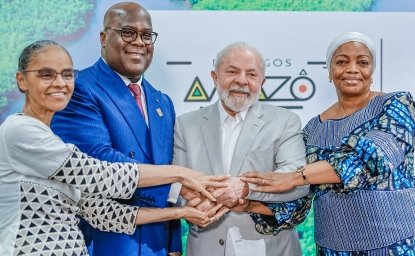
Brazil and the Future of the Amazon
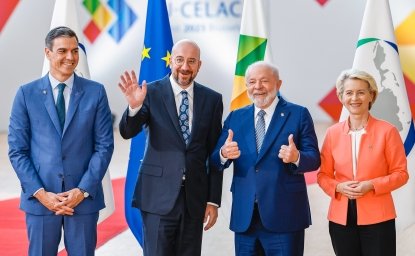
Europe and the Americas: The Road Ahead for Transatlantic Cooperation

LGBTQ+ Rights in the Americas: Progress and Remaining Challenges
